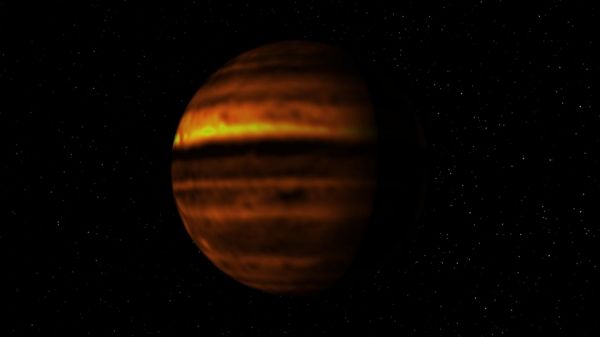Storm clouds rooted deep in Jupiter’s atmosphere are affecting the planet’s white zones and colorful belts, creating disturbances in their flow and even changing their color.
Thanks to coordinated observations of the planet in January 2017 by six ground-based optical and radio telescopes and NASA’s Hubble Space Telescope, a University of California, Berkeley, astronomer and her colleagues have been able to track the effects of these storms — visible as bright plumes above the planet’s ammonia ice clouds — on the belts in which they appear.
The observations will ultimately help planetary scientists understand the complex atmospheric dynamics on Jupiter, which, with its Great Red Spot and colorful, layer cake-like bands, make it one of the most beautiful and changeable of the giant gas planets in the solar system.
One such plume was noticed by amateur astronomer Phil Miles in Australia a few days before the first observations by the Atacama Large Millimeter/Submillimeter Array (ALMA) in Chile, and photos captured a week later by Hubble showed that the plume had spawned a second plume and left a downstream disturbance in the band of clouds, the South Equatorial Belt. The rising plumes then interacted with Jupiter’s powerful winds, which stretched the clouds east and west from their point of origin.
Read more at University of California - Berkeley
Image: ALMA image showing the distribution of ammonia gas below Jupiter's cloud deck. (Credit: ALMA (ESO/NAOJ/NRAO), I de Pater/UC Berkeley et al.; NRAO/AUI NSF, S. Dagnello)


